|
Bancroft this Week https://www.bancroftthisweek.com/coming-out-of-our-shells-to-protect-ontarios-turtles/ Export date: Sun Feb 8 7:42:28 2026 / +0000 GMT |
Coming out of our shells to protect Ontario’s turtles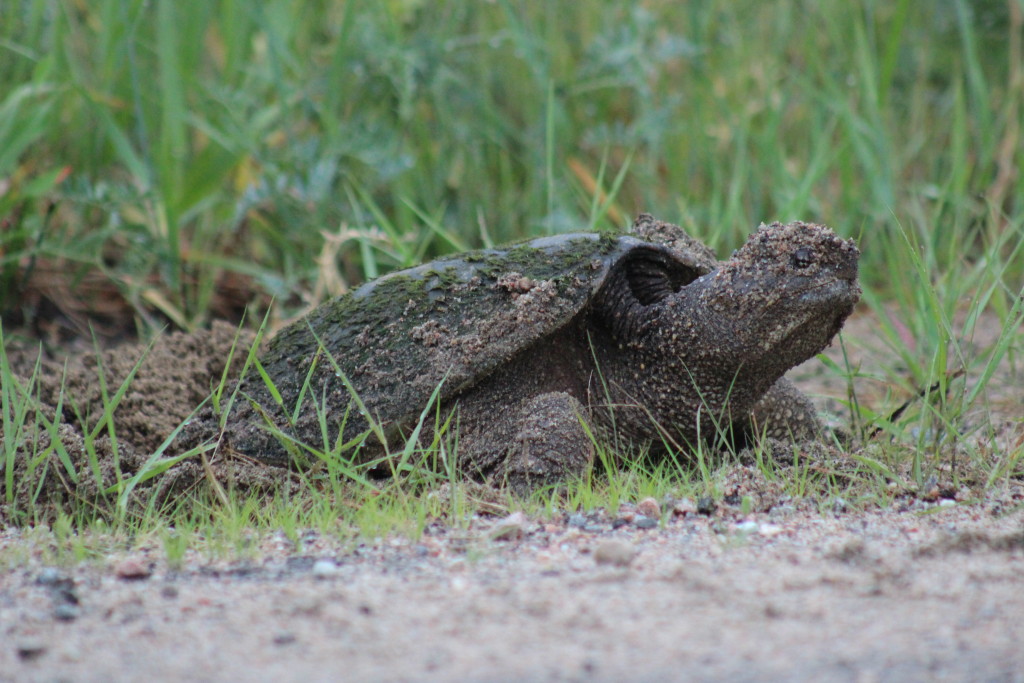 By Nate Smelle On this planet for a mere 130,000 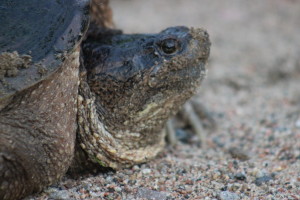 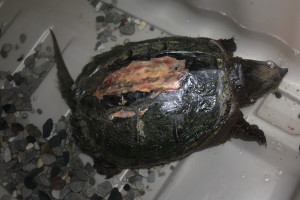 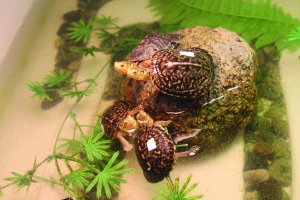 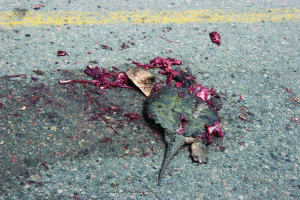 years the human species has much to learn from the other species sharing in our evolutionary history. In fact, many species still in existence today have hundreds of millions of years of evolutionary experience that we can learn from if we take the time to get to know them. Keep your eyes on the road this time of year for one of these living lessons in evolutionary longevity...the turtle. With more than 200 million years of experience on this planet these roadside sages are now in danger of being lost forever. Because turtles tend to lay their eggs in a nest of sand and gravel often on the shoulder of the roads and highways snaking through North Hastings they also tend to have a high mortality rate. years the human species has much to learn from the other species sharing in our evolutionary history. In fact, many species still in existence today have hundreds of millions of years of evolutionary experience that we can learn from if we take the time to get to know them. Keep your eyes on the road this time of year for one of these living lessons in evolutionary longevity...the turtle. With more than 200 million years of experience on this planet these roadside sages are now in danger of being lost forever. Because turtles tend to lay their eggs in a nest of sand and gravel often on the shoulder of the roads and highways snaking through North Hastings they also tend to have a high mortality rate. In fact, of the eight turtles native to Ontario seven of them are listed as species at risk. Only the Painted Turtle remains off the list and experts believe that the only reason this is the case is because there is a lack of study of this species. There are many factors causing the decline of turtles in Ontario. These include; Habitat loss and habitat fragmentation, road and boat mortality, being hunted for food and then being poached to supply the pet trade are the main causes behind the decline of turtle populations. The Spotted Turtle, Wood Turtles, and Blanding's Turtles are the most endangered in Ontario, threatened on all sides, facing high road and boat mortality, and suffering greatly from poaching for the pet trade. Naturalist and representative for Kids for Turtles Bob Bowles says that people can do their part to prevent the situation from worsening through getting to know our neighbours. “The best way we can help these species that are in decline is through public education. If the public becomes educated that turtle populations are rapidly declining then people will feel inclined to help them. In your own backyard take note of what creatures you are sharing the land with, and then from one year to the next you can recognize how healthy the biodiversity is in your resident ecosystem. It's not just turtles that we need to pay attention to; it is Dragonflies, Butterflies, invasive species. The list goes on.” The Kawartha Turtle Trauma Centre is a charitable organization based in Peterborough making a difference by rehabilitating injured Turtles. Dr. Sue Carstairs of the KTTC has travelled the world to put her love for turtles into action. By standing up for threatened species like turtles Carstairs is also taking a stand for the health of the planet itself. “We would love to put our charity out of business, but the reality is that humans need roads, and until there are eco-passages under all the roads there will be turtle trauma,” she said. “Unfortunately people don't always know what turtles look like on the roads. Sometimes they may look like a rock, or even a pot hole. Once we learn to recognize what they look like on the road side one of the best things we can do to help is to pull over safely and help them across the road in the direction that they are going.” Although many of the turtles admitted to the facility were hit accidently amidst road and boating traffic, a study conducted in Long Point Ontario concluded that about 2.7 per cent of turtle strikes are intentional. In this study researchers placed fake turtles directly in the line of traffic or in the center of the lane so that the driver would have to either cross the center line with his or her left tires or enter the shoulder of the road with the right tires to intentionally strike the decoy. “The impact upon an ecosystem from losing a 75 year old Snapping Turtle for instance is incredibly destructive to the balance of that community,” said Carstairs. “On average a Snapping Turtle will have to lay 1500 eggs in order to generate a single adult. These eggs and hatchlings act as a food source for many other species of wildlife such as birds, fox, and skunks. If you take away the biodiversity this whole fragile house of cards begins to collapse.” Another reason that such a loss is so detrimental is because it takes 18-20 years for most species of turtles to reach sexual maturity. This means that throughout that time there are no turtles being produced. As suitable habitat continues to be consumed by the pressures of urban sprawl it becomes more difficult for turtles to perpetuate their species. This does not just cause problems for turtles it also heavily stresses the waterways we depend upon to survive. For example, Bowles pointed out how the misunderstood disposition of the Snapping Turtle sometimes causes people to overlook its importance in terms of the role it plays in maintaining the health of an ecosystem. “The Snapping Turtle is not aggressive, it's defensive. When it is on land it feels vulnerable because it has many predators, and it does not have a shell that it can retreat into like other turtles. In the water a Snapping Turtle would never attack you at all. In fact, they help clean up the waterways we attain our drinking water from by eating dead fish, dead frogs, and expired mammals. They are incredibly efficient scavengers.” So what is the profound secret that has allowed turtles to have existed for such a long time? Carstairs answers. “Their slow and steady approach to life seems to have worked for them over the last 200 million years. They are very gentle, peaceful creatures going about their business, doing a good job performing their ecosystem services diligently while plodding forward humbly on the evolutionary path.” When driving throughout North Hastings this summer remember to slow down anywhere there is known turtle habitat by the roadside. Also take note that anywhere there is water on both sides of the road there will also likely be turtles crossing. Keep your eyes on the road and your hands upon the wheel.To learn more about the Kawartha Turtle Trauma Centre visit www.kawarthaturtle.org, for more info on turtles visit www.kidsforturtles.com. |
|
Post date: 2015-06-25 11:05:38 Post date GMT: 2015-06-25 15:05:38 Post modified date: 2015-06-25 11:05:38 Post modified date GMT: 2015-06-25 15:05:38 |
|
Export date: Sun Feb 8 7:42:28 2026 / +0000 GMT This page was exported from Bancroft this Week [ https://www.bancroftthisweek.com ] Export of Post and Page has been powered by [ Universal Post Manager ] plugin from www.ProfProjects.com |